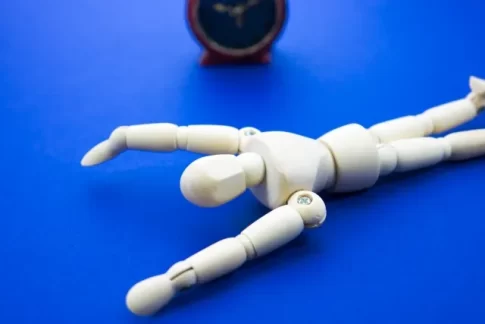この記事の概要
Sildenafil (Sildenafil) is a typical drug used to treat erectile dysfunction (ED) and is classified as a PDE5 (phosphodiesterase 5) inhibitor.This drug supports erections by dilating blood vessels and increasing blood flow. It is effective for many patients, but like all drugs, sildenafil has side effects. The incidence and severity of side effects vary from individual to individual, ranging from common to rare to more serious. This article will discuss the side effects of sildenafil in detail, and will also discuss points to keep in mind when using the drug.
Sildenafil (Sildenafil) is a typical drug used to treat erectile dysfunction (ED) and is classified as a PDE5 (phosphodiesterase 5) inhibitor. This drug supports erections by dilating blood vessels and increasing blood flow. It is effective for many patients, but as with all drugs, sildenafil has side effects. The incidence and severity of side effects vary from individual to individual, ranging from common to rare to more serious. This article will discuss the side effects of sildenafil in detail, and will also discuss points to be aware of when using the drug.
1. Common Side Effects
Mild side effects seen in many patients using sildenafil include
- Headache: the most common side effect, due to the vasodilating effect of sildenafil.
- Hot flashes: Hot flashes may occur on the face and neck, which may cause redness.
- Indigestion: Stomach discomfort and heartburn may occur.
- Nasal congestion: The mucous membranes of the nose may become congested and stuffy.
- Visual disturbances: Vision may be temporarily blurred or appear bluish.
- Dizziness: Fluctuations in blood pressure may cause dizziness.
- Muscle pain: Some patients may experience muscle or back pain.
2. Rare side effects
The following side effects are rare but may occur
- Persistent erections (priapism): painful erections lasting more than 4 hours and requiring urgent treatment. Sustained erections are very rare, but can damage penile tissue if left untreated.
- Hearing impairment: Sudden loss of hearing and tinnitus have been reported, but this is a very rare side effect.
- Visual disturbances: Sudden loss of vision has been reported, but other factors may be involved.
3. Serious side effects
Serious side effects are very rare, but if you experience any of the following symptoms, you should contact your doctor or seek emergency medical care immediately
- Anaphylaxis (severe allergic reaction): Symptoms may include difficulty breathing, swelling of the face and throat, itchy skin or rash.
- Heart attack symptoms: If you experience chest pain, shortness of breath, or an irregular heartbeat, you should stop using sildenafil and seek immediate medical attention.
- Low blood pressure: There is a risk of severe low blood pressure with sildenafil, especially if you are taking nitrates. This can cause dizziness, fainting, and shock.
4. Drug interaction
There are a few caveats when using sildenafil with other medications.
- Concomitant use with nitrates: Concomitant use with sildenafil is contraindicated if nitrates are being used. Concomitant use may cause severe hypotension.
- Antihypertensives: When used with some antihypertensives, careful management is required to prevent excessive blood pressure reduction.
- CYP3A4 inhib itors: CYP3A4 inhibitors such as ketoconazole and ritonavir may increase blood levels of sildenafil and may require dose adjustment.
5. Precautions for use
- Elderly patients and patients with impaired hepatic or renal function: Dosage adjustments may be necessary due to possible slowed metabolism of sildenafil.
- Patients with cardiovascular disease: Patients with heart disease or low blood pressure should always consult with a physician for appropriate evaluation prior to use.
Summary
Sildenafil is an effective option in the treatment of erectile dysfunction, but side effects can occur. Common side effects include headache, hot flashes, indigestion, nasal congestion, visual disturbances, dizziness, and muscle pain, which are usually mild and temporary. Rare side effects include persistent erections (priapism), hearing loss, and visual disturbances, and if these occur, seek medical attention immediately. In addition, serious side effects include anaphylaxis, heart attack symptoms, and low blood pressure, which require immediate medical attention if they occur. Sildenafil may also interact with other drugs, especially with nitrates. Dosage adjustments are necessary for the elderly and patients with impaired liver or kidney function. When using sildenafil, it is important to consult with a physician in advance to ensure that you are using the drug properly and in a way that is appropriate for you.










